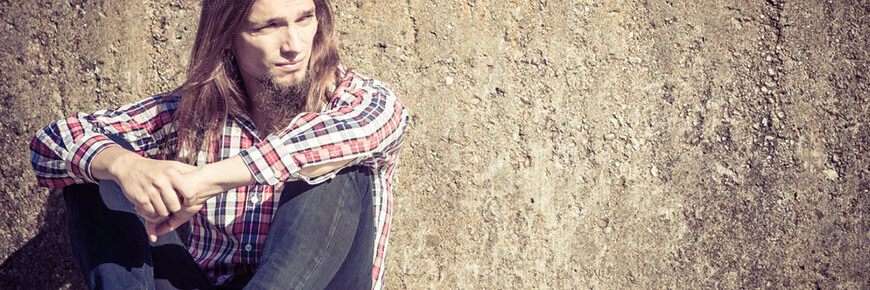Behavioral Health
Relating to one's behavior, or how a person chooses to act or "behave," behavioral health and behavioral disorders encompass those mental illnesses which are less biological, but more in the range of deliberate choices (e.g., substance abuse or eating disorders). The terms behavioral health and mental health are often used interchangeably, even by those who have loved one's or a child with behavioral health related issues. Behavioral health includes all the factors related to an individual’s mental well-being. Emotional feelings and behavioral tendencies that affect the functional ability and how people see themselves.
Mental health covers many of the same areas from the biological perspective. From a scientific or psychiatric point of view, behavioral health encompasses all issues either causing or resulting from behaviors that damage a person’s well-being. One primary concern of scientists is the rise of behavioral health issues in teens and young adults.
Behavioral health includes not only ways of promoting well-being by preventing or intervening in mental illness (such as depression or anxiety), but behavioral health also aims at preventing or intervening in substance abuse or other process addictions. Many feel the term "behavioral health" is less stigmatized than "mental health," so it acts as a euphemism which tends to open doors that might otherwise remain closed. What's more, behavior is an aspect of identity that can be changed, so "behavioral health" might be a more hopeful concept for those experiencing mental illness or addiction; and who may have felt that these diseases were a permanent part of their life.
behavioral disorders
Behavioral disorders involve a pattern of disruptive behaviors with individuals (primarily children) that last for at least 6 months; and cause problems in school, at home, and in social situations. Nearly everyone shows some of these behaviors at times, but "behavior disorders" are more serious.
A behavior disorder is a disorder wherein conscious choice is typically necessary. Disorders of the brain include both behavior disorders and other psychiatric illnesses. The primary difference between a behavior disorder and another type of psychiatric disorder is the presence of choice. Psychiatric conditions are considered to be involuntary while in behavior disorders, choices are essential.
Examples of common behavioral disorders may include:
- Drug use
- Cannabis use disorder
- Alcohol dependence
- Eating disorders
- Defiant behavior
- Criminal activity
- Hyperactivity
- Impulsivity
Conduct disorder is considered to be one of the most difficult psychological disorders to treat in children as it involves many troubling behaviors. Conduct disorder is defined in the DSM-5 as a repetitive and persistent pattern of behavior in which the basic rights of others or major age-appropriate societal norms or rules are violated.
Examples of Behaviors Displayed by an Individual with Conduct Disorder May Include:
- Aggression toward people and/or animals
- Often bullies, threatens, or intimidates others
- Often initiates physical fights
- Has used a weapon that can cause serious physical harm to others
- Has been physically cruel to animals
- Has forced someone into sexual activity
- Destruction of property:
- Has deliberately engaged in fire setting with the intention of causing serious damage
- Has deliberately destroyed others' property (other than by fire setting)
- Deceitfulness or theft:
- Has broken into someone else's house, building, or car
- Often lies to obtain goods or favors or to avoid obligations
- Serious violations of rules:
- Often stays out at night despite parental prohibitions, beginning at a young age
- Has run away from home overnight while living at home
signs & symptoms
Signs of a Behavioral Health Disorder
Signs and symptoms of a behavioral health disorder may include changes in mood, personality, personal habits and/or social withdrawal. Behavioral health problems may be related to excessive stress due to a particular situation or series of events.
Navigating the teen years is difficult even without extra problems. The behaviors that manifest like eating disorders, self-mutilation, or violently acting out, can be dangerously destructive and potentially fatal. Even in milder forms, some damage is possible. Extreme or mild these problems create difficulty as younger people attempt to function on a day to day basis. For those who are afflicted getting treatment is vital and sadly only about one-half of suffering kids that need help get it. Many young people are left ashamed, hopeless, and isolated.
Learning about Developing Symptoms
Learning about developing symptoms, or early warning signs, and taking action can help. Early intervention can help reduce the severity of an illness. It may even be possible to delay or prevent a major behavioral disorder altogether.
If several of the following are occurring, it may useful to follow up with a mental health professional:
- Withdrawal: Recent social withdrawal and loss of interest in others.
- Drop in functioning: An unusual drop in functioning, at school, work or social activities, such as quitting sports, failing in school.
- Apathy: Loss of initiative or desire to participate in any activity.
- Feeling disconnected: A vague feeling of being disconnected from oneself or one’s surroundings.
- Nervousness: Fear or suspiciousness of others or a strong nervous feeling.
- Unusual behavior: Odd, uncharacteristic, peculiar behavior.
- Sleep or appetite changes: Dramatic sleep and appetite changes or decline in personal care.
- Mood changes: Rapid or dramatic shifts in feelings.
Isolation and hopelessness cause problems with schoolwork, social interaction, and emotional growth. The need for human contact can drive troubled teens into substance abuse, promiscuity, and other high-risk activities. The third leading cause of death in younger people is suicide. A large percentage had behavioral health issues like depression.
causes
The Causes of Behavioral Disorders
As defined by experts, a behavioral disorder is "a clinically significant behavioral or psychological syndrome or psychological pattern that occurs in an individual and that is associated with present disability or with a significantly increased risk of suffering, death, pain, disability, or an important loss of freedom." The causes of behavioral disorders are generally complex and vary depending on the particular disorder and the individual.
Most behavioral disorders are a result of a combination of several different factors rather than just a single factor. Although the causes of most behavioral disorders are unknown, it has been found that different biological, psychological, and environmental factors can all contribute to the development or progression of behavioral disorders.
Behavioral Health Issues Increasingly Common
According to the National Alliance on Mental Illness (NAMI), behavioral health issues are increasingly common among young people. Statistics show that one in every five teens and young adults live with some form of the condition. About 50% develop the problem by age 14 and 75% by age 24. These disorders, to name a few, include depression, substance abuse, and biological afflictions like ADHD.
treatment
Most Frequent Behavioral Health Diagnosis
Pediatricians estimated that the average percentage of children in their practices with a behavioral health disorder was 15%. The study did not find significant differences in perceptions related to time in practice or gender of the pediatric provider. The most frequent behavioral health diagnosis was attention-deficit/hyperactivity disorder (ADHD).
According to the Diagnosis and Treatment of Behavioral Health Disorders study performed through the US National Library of Medicine, The vast majority (96%) of pediatricians provided nonmedication interventions, including supportive counseling, education for coping with ADHD, behavior modification, and/or stress management.
How to Know if Your Child's Problems are Serious?
Not every problem is serious. In fact, many everyday stresses can cause changes in your child's behavior. For example, the birth of a sibling may cause a child to temporarily act much younger than he or she is. It is important to be able to tell the difference between typical behavior changes and those associated with more serious problems.
Watching someone you love suffer because of behavioral health problems as a parent is often heartbreaking and frustrating. Resources are available. Get Help. Talk to family doctors. They can point the way to help. They provide many links to resources. Don’t give up. Many successful adults began with a youth dominated by behavioral health problems.
professionals
How to Find a Therapist in My Area
What is a mental or behavioral health professional? A behavioral health specialist is a health care practitioner or community services provider providing services and therapeutics for the purpose of improving an individual's behavioral health or to treat behavioral disorders. If you are wondering how to find a therapist in your area, there are many types of behavioral health professionals that each have unique specialties; and finding the right one for you may require some research.
Below is a List of Behavioral Health Resources, Professionals, and Counselors:
Licensed Professional Counselor: A licensed professional counselor with a masters degree in psychology, counseling or a related field. Trained to diagnose and provide individual and group counseling.
Mental Health Counselor: A counselor with a masters degree and several years of supervised clinical work experience. Trained to diagnose and provide individual and group counseling.
Clinical Psychologist: Psychologists are usually doctoral-degree professionals (Ph.D. or Psy.D.) trained to provide professional counseling on psychological and emotional health related issues.
Psychiatrist (can prescribe medication): Psychiatrists are medical doctors who specialize in the treatment of mental, emotional, or behavioral problems.
Marriage and Family Therapist: Marriage & Family Therapists are counselors with a masters degree, with special education and training in marital and family therapy.
Psychoanalyst: Psychoanalysts follow Sigmund Freud's theories that painful childhood memories contained in the unconscious are the cause of emotional disturbances.
Clinical Social Worker: Clinical social workers have a master’s degree in social work and are trained to make diagnoses and provide individual and group counseling, case management and advocacy.
Certified Alcohol and Drug Abuse Counselor: Counselor with specific clinical training in alcohol and drug abuse. Trained to diagnose and provide individual and group counseling.
Behavioral Health Services Near Me
Below, you can find a list of behavioral health services to help you. Choosing the right doctor and/or therapist for your mental health needs may seem like a daunting task. But, finding the right doctor is an important step towards getting proper treatment.



